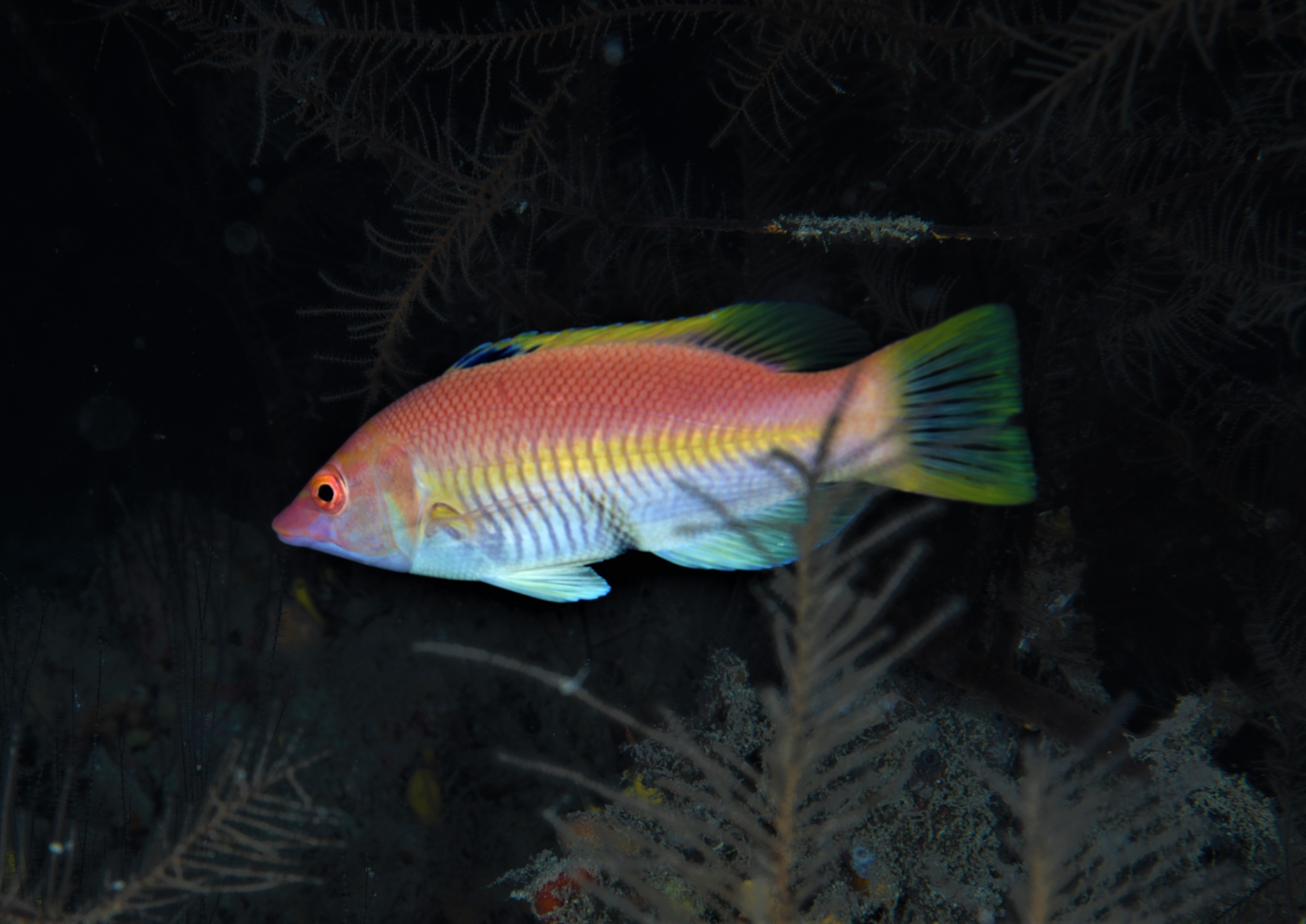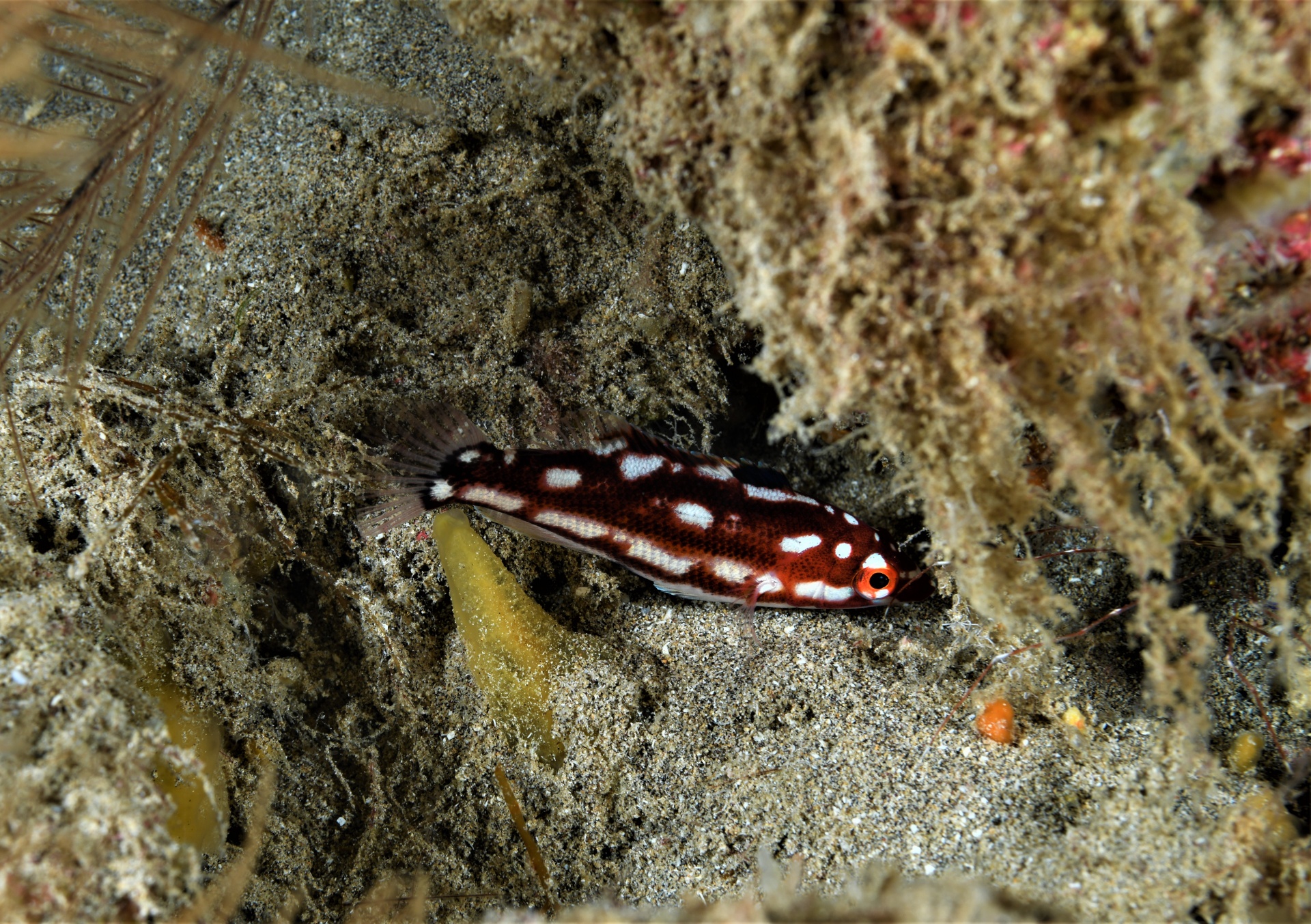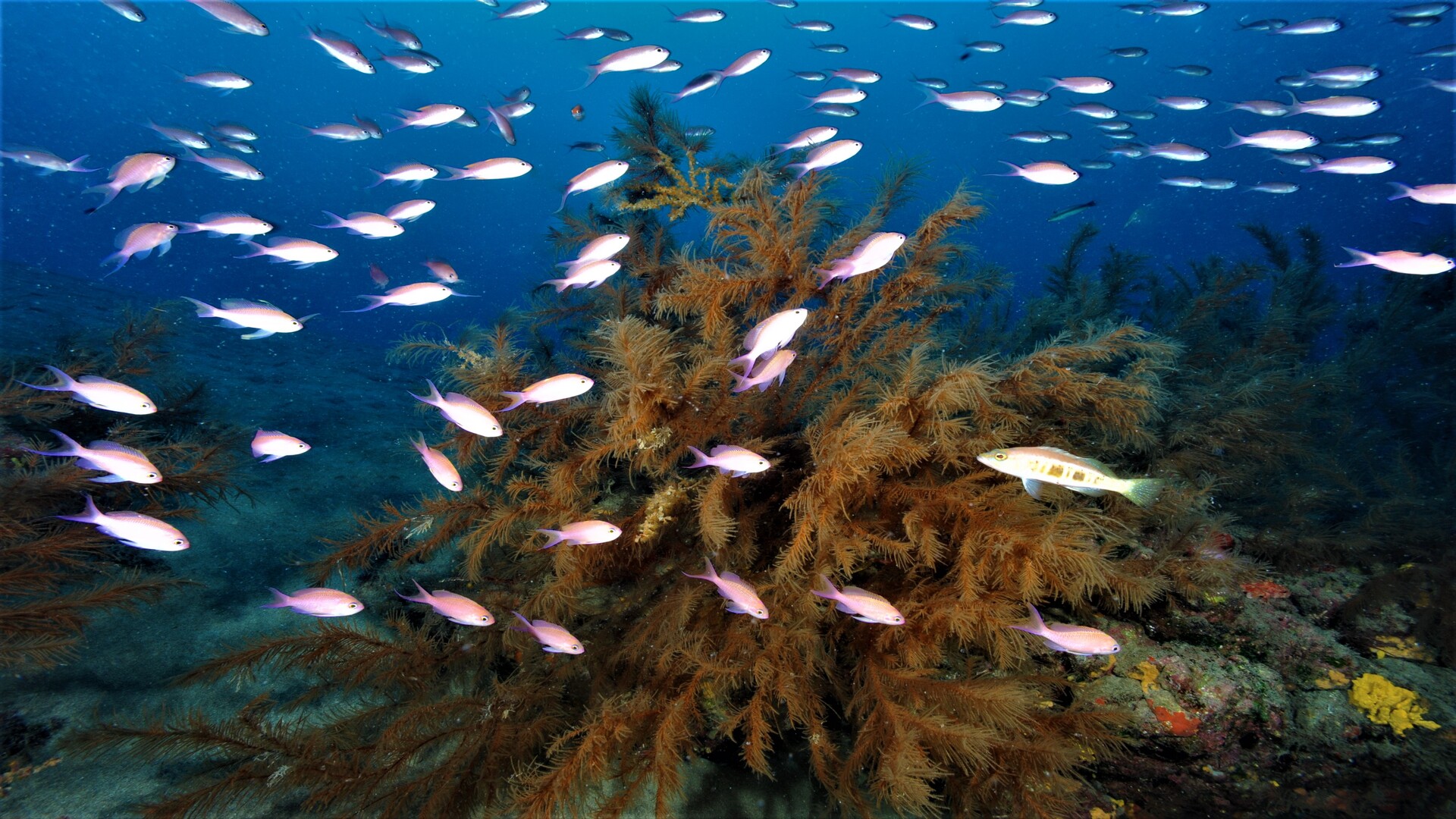The research published in Scientific Reports determines that 60% of fish species recorded live in the mesophotic zone and 15% of them are exclusively associated with black coral forests.
Recent research carried out by the Biodiversity and Conservation Group (BIOCON) of the University Institute for Research in Sustainable Aquaculture and Marine Ecosystems (ECOAQUA) has determined that nearly 60% of fish that live in the mesophotic zone are unique to these environments, of which 15% live exclusively in black coral forests.
These studies are especially important in light of the lack of conservation plans for these marine habitats in local, regional, national or international legislation.
This lack of specific protection, together with the slow growth rate of mesophotic habitats, such as black coral forests, entails that human activities like destructive fishing, mining, coastal development or sedimentation, among other factors, make these habitats particularly vulnerable.
 Adult female dogfish (Bodianus scrofa) swimming over colonies of black corals. Picture by Fernando Espino.
Adult female dogfish (Bodianus scrofa) swimming over colonies of black corals. Picture by Fernando Espino.
Thus, as the data collected by the researchers suggest, the increase in these type of impacts threatens the survival of the unique fish diversity inhabiting these environments, located between 50 and 200 meters deep off the Canary coasts.
These species have a limited ability to adapt to other environments, as evolution has allowed these species to specialize in the use of these habitats.
The swallowtail seaperch (Anthias antias) has been recorded as one of the most abundant species in these particular marine habitats, as well as the blacktail comber (Serranus atricaudata). Meanwhile, species of interest for artisanal and traditional Canary Island fisheries, such as the barred hogfish (Bodianus scrofa), registered abundant juveniles that can use black coral forests as breeding areas, given the protection they offer them from potential predators.
 Juvenile of pejeperro (Bodianus scrofa) seeking refuge among colonies of black corals. Picture by Fernando Espino.
Juvenile of pejeperro (Bodianus scrofa) seeking refuge among colonies of black corals. Picture by Fernando Espino.
Through technical diving equipment (Rebreather), which overcome the limitations of autonomous diving, the investigation has been able to quantify empirically, for the first time in the Macaronesia, the diversity patterns of these black coral forests, as well as the ecological and evolutionary processes that determine the current biodiversity of the unique fish species inhabiting these mesophotic habitats.
The research, signed by researchers Néstor E. Bosch, Fernando Espino, Fernando Tuya, Ricardo Haroun, Lorenzo Bramanti and Francisco Otero-Ferrer, from the BIOCON group of ECOAQUA, has been published, under the title ‘Black coral forests enhance taxonomic and functional distinctiveness of mesophotic fishes: implications for biodiversity conservation’, in the internationally prestigious journal Scientific Reports, published by Nature Springer.
The publication costs of this article were covered by the ULPGC Excellence subvention, financed by the Consejería de Economía, Conocimiento y Empleo del Gobierno de Canarias (Regional Ministry of Economy, Knowledge and Employment of the Canary Islands Government).
The results of this study are part of the B-CHARMED project, led by the Atlantic Biodiversity and Sustainability Association (ABAS) and in whose work researchers from ECOAQUA have collaborated, financed by the European Union’s program LIFE, the French Biodiversity Office (OFB) and the French Development Agency (AFD) through the LIFE4BEST program.


